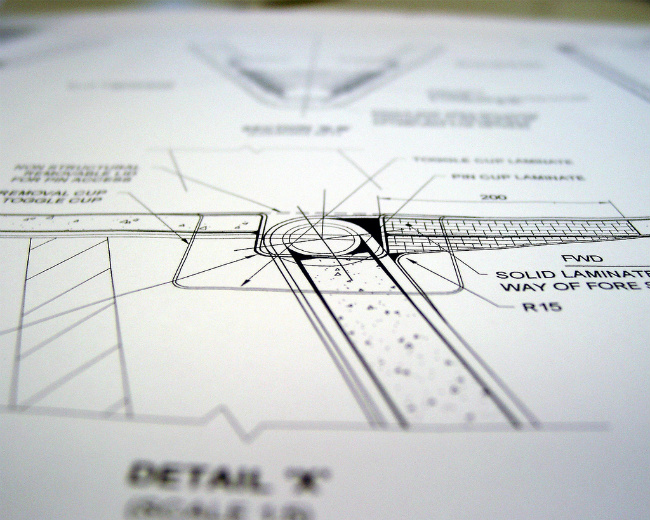It’s impossible to overstate the importance of structural engineering in our everyday lives. Without structural engineers to evaluate structures and assist with safe design solutions, we wouldn’t have stable buildings, bridges, and other civil infrastructure.
Whether it’s for residential properties or commercial buildings, structural engineers work with crews of architects, builders, and other professionals in the construction industry to complete strong and safe structures. Their specialised knowledge allows them to calculate various loads and the effects of environmental factors on structural designs and materials.
If you’re debating whether you need to hire a structural engineer for your building project or not, here are six benefits of structural engineering that you can’t ignore.
Promoting safety
Building a structure without consulting a structural engineer is a recipe for disaster. If you don’t have the necessary training and experience, you’re likely to make mistakes and miss safety hazards, resulting in a poorly built structure that could be at risk of collapse in the future.
The purpose of structural engineering is specifically to make sure that this doesn’t happen – taking into account all load-bearing elements, local ground and weather conditions, and intended usage to ensure long-term structural integrity.
Professional structural engineers will have worked on many building projects, and be familiar with the structural safety requirements of different types of construction. Without their input, you’re risking structural failure from elements like the foundations, wall columns, roof beams, and more.
Identifying issues
When planning any new construction from scratch or retrofitting an existing structure, it’s crucial to have a structural engineer inspect and analyse the plans or the current state of the structure. They have the specialist skills and knowledge to identify potential issues so they can be corrected early.
Not only does an unstable building pose a risk of causing injuries or even fatalities, but repairing damage from incorrect construction can be very costly. Consulting a structural engineer from the start gives them the opportunity to diagnose structural defects before they can get any worse.
As well as identifying the problems that need adjustments or repairs, structural engineers will be able to recommend the best course of action to achieve a safe level of structural integrity again. This can be invaluable if you’re trying to sell an existing building.
Keeping things up to code
Another reason that makes hiring structural engineers essential in analysing structures and building plans is that they’ll also be well-versed in local and national building regulations. To get a certificate legally signing off on the completion of a building, allowing it to be sold and put into use, it must pass an official inspection checking that everything follows governmental safety codes.
Certain types of construction also require planning permission from local authorities, and structural engineers can help you with preparing and submitting the relevant plans and paperwork so building work can go ahead. Having someone knowledgeable enough to make sure every part of your project is always legally compliant can save you from a lot of trouble down the line.
Direction from a qualified structural engineer will prevent delays in reviewing plans and methods and making changes later in the project. Costs can quickly pile up beyond your projections if your applications for legal approval keep getting rejected due to non-compliance.
Selecting suitable materials
Though the building plans and architectural designs are important, they can’t be executed properly without appropriate materials. It doesn’t matter if a building looks great when it’s freshly finished if it begins to crumble because your team prioritised appearance over function.
Most parts of a building’s structure won’t actually be visible, so looks aren’t the priority there – but it doesn’t mean you can try to cut corners with cheap materials since they won’t be seen. Parts like these are actually the most important because they’re load-bearing components, meaning the materials need to have the right levels of resistance to support the building.
Since it’s a structural engineer’s job to consider strength and stability above all else, they’re the ideal team members to help you choose the right materials that fit the design vision and also provide the required durability and longevity for the site conditions and the structure’s purpose.
Creating cost-effective designs
Making the most of structural engineering services is an efficient way to ensure that your project is as cost-effective as possible. Their ability to catch and course-correct structural problems, from blueprints to building material choices, helps to minimise the risk of financial loss.
Building projects tend to be pricey endeavours, and the last thing any developer or investor wants is to sink money into a structure that fails. Fixing latent structural defects can add thousands of pounds to your initial investment, and cause delays that impact potential sales deals.
Structural engineers contribute to the designs of foundations, roofs, retaining walls, and more, including floor plans and the layouts of beams and columns. Getting these wrong can be an expensive mistake to fix, so it’s best to get the input of a structural engineer and avoid wasting time and money on squandered materials and labour – which would put pressure on your ability to complete the project, due to the rising costs of construction materials.
Conducting assessments
It’s vital to have a professional carry out structural inspections either throughout the process of constructing a building, or during an initial assessment of a building before proceeding with plans for refurbishment. This helps building work to proceed smoothly, proving that it is structurally sound.
Structural problems aren’t always immediately visible, meaning they can easily go unnoticed to the untrained eye. Structural engineers will know the smaller signs to look out for that indicate certain issues with the internal structure, beyond the obvious signs like deteriorating surface materials.
At any stage, you can hire a structural engineer for a second opinion on a building project, which will always be more helpful than if you hadn’t. They also have specialist equipment, so any inspection you carry out yourself will never be as comprehensive as an assessment by a structural engineer.
How to hire structural engineers for successful projects
When it comes to domestic or commercial construction projects, it’s clear that a structural engineer can be a huge asset to your team. Their professional insight and practical responsibilities make a big difference to the design and durability of the finished product.
To move forward with a potentially complicated building project, be sure to get help from expert civil engineers in your area. For example, hiring structural engineers in Manchester or looking for structural engineering in Liverpool will allow you to benefit from their local and regional knowledge as well as their years of dedicated training in this civil engineering discipline.You simply can’t overlook the contributions of structural engineers to the success of completed construction work, and you can’t carry out the same level of work without them – so contact a local structural engineer today to bring your building ideas to life safely and successfully.


















